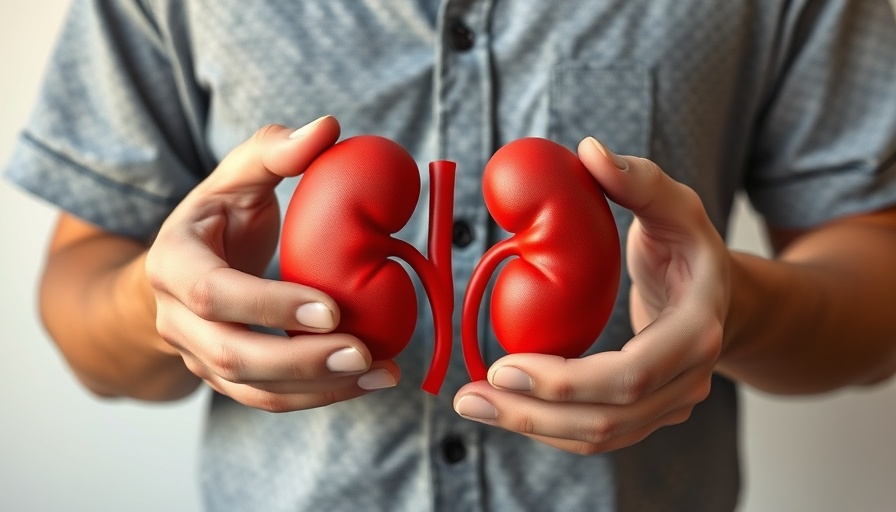
Understanding Kidney Stones: A Growing Concern
Kidney stones are a common medical condition that affects millions each year. Forming primarily from calcium, cystine, oxalate, or uric acid, these stones can vary in size and often remain asymptomatic if they do not move from the kidneys. However, when they travel down the ureter, sharp pains emerge, creating a painful scenario for those affected. Understanding the causes, risk factors, and symptoms associated with kidney stones is crucial for effective treatment and prevention.
What Triggers Kidney Stones?
The primary cause of kidney stones is dehydration, leading to concentrated urine where minerals can easily crystallize. In addition to dehydration, certain dietary habits can elevate the risk. High-protein and high-sodium diets can cause changes in urine composition that foster stone formation. Individuals consuming excessive amounts of protein may see a rise in uric acid levels, leading to uric acid stones. Similarly, high salt intake can elevate calcium levels in the urine, resulting in calcium stones.
Genetic Factors and Lifestyle Choices
Research indicates genetic predisposition plays a significant role in kidney stone formation. Those with a family history of kidney stones are more likely to develop their own over time. Personal experiences with stones increase the recurrence rate, which can climb substantially based on individual health behaviors and lifestyle choices. Maintaining a proper diet and hydration levels becomes paramount for individuals with such backgrounds.
Pain and Symptoms to Recognize
Identifying kidney stones among various symptoms is crucial. The hallmark symptom is severe, stabbing pain, usually localized in the back or side. Other signs may include blood in urine, frequent urination, and nausea. Understanding these symptoms allows individuals to seek timely medical attention and mitigate potential damage caused by untreated kidney stones.
The Importance of Hydration
Staying adequately hydrated is arguably the most effective method of kidney stone prevention. The common recommendation is drinking at least two liters of water daily, thereby diluting the concentration of minerals in urine. This practice not only reduces the risk of stone formation but is also beneficial for overall kidney health.
Natural Remedies and Lifestyle Adjustments
Embracing a lifestyle medicine approach can be beneficial in managing and preventing kidney stones. Incorporating natural therapies and dietary supplements that promote kidney health can serve as complementary options alongside traditional treatments. Herbal remedies such as dandelion root and nettle leaf are known for their diuretic properties, which may support kidney function. Moreover, adopting a balanced diet rich in fruits and vegetables fosters optimal health and wellness.
Expert Recommendations for Prevention
Experts recommend specific dietary modifications to minimize kidney stone risk. Opting for a balanced diet low in animal proteins, processed foods, and refined sugars enhances urinary function. Maintaining adequate potassium and magnesium intake through fruits, vegetables, and whole grains allows for an electrolyte balance that further mitigates the risk of stone formation.
Community Health Awareness Initiatives
Local health and wellness centers frequently conduct workshops and seminars addressing kidney health, encouraging better community practices concerning hydration and diet. Engaging in these health events fosters a supportive environment for individuals seeking assistance in managing kidney health and promotes collective awareness.
Conclusion: Your Path to Wellness
As we continue to understand the implications of kidney stones, prioritizing health and wellness practices becomes a necessity. Making informed choices surrounding hydration, diet, and lifestyle can dramatically affect one's risk. For further exploration of healthy living and community wellness, consider participating in local health events. Together, we can strengthen community bonds and promote personal health.
 Add Row
Add Row  Add
Add 




 Add Row
Add Row  Add
Add 


Write A Comment